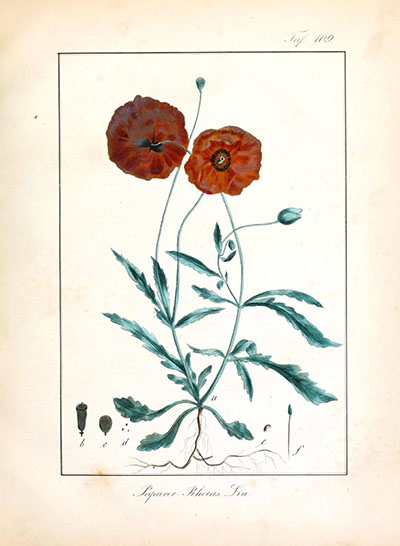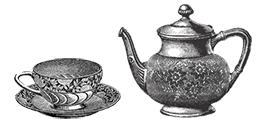Selling Opium to China to Pay For Tea
 Source: nwaonline.com
Source: nwaonline.comPapavir somniferum, the poppy plant used to make opium
 Source: mellowmint.deviantart.com
Source: mellowmint.deviantart.comChina paid for opium with the same British silver that Britain used to pay for tea
 Source: commons.wikimedia.org
Source: commons.wikimedia.orgBritain sold opium to China to pay for tea
"There was a time when maps of the world were drawn in the name of plants, when two empires, Britain and China went to war over two flowers: the poppy and the camellia." Sarah Rose
As tea became part of Britain's national identity, opium from the poppy flower, the Papavir somniferum, invaded China, first by the Dutch, and then by the British and Americans.
Britain became addicted to tea while China became addicted to opium. It was the East India Company, however, that benefited financially from both. The East India Company sold Indian-grown opium to China through the use of independent contractors. This prevented direct conflict with the Chinese government that officially discouraged opium use.
In exchange for the opium, the East India Company's contractors accepted only British silver, which the East India Company then used to buy tea. This opium-silver-tea circulation was known as the Silver Triangle, but circulating the same British silver within China damaged the Chinese economy.
The British took full advantage of this lucritive busienss, increasing opium imports to China 1000 times between 1750 and 1830! They also increased the amount of tea imported to England, where the demand for tea was so great that the quality of tea was often sacrificed over quantity.
Opium was generally accepted in Britain as medicinal, but the Chinese government eventually made opium-smoking illegal. This was ignored by both Britain's need to purchse increasing amounts of tea and China's increasingly opium-addicted population.
Britain did not have a problem with opium, so they believed the Chinese did not either. Become a drug dealer!
This codependent system of opium and tea became unbalanced, and the amount of opium smuggled into China outpaced the amount of tea leaving the country. Something had to give, and two Opium wars were the result.
The strong British navy devstated the Chinese in both Opium Wars, 1839-42 and 1856-60.
Britain did not want China to cultivate opium within Chinese borders. If China grew its own opium, they would not buy Indian-grown opium, and without the continued sale of Indian-grown opium, Britain would not have the silver to purchase tea.
The Chinese concessions for losing the Opium Wars was to keep the opium trade legal, losing Hong Kong to British control, and for the first time, the opening of more Chinese ports to trade with the west.
Even though they got what they wanted from the Chinese, Britain needed to find a new source of tea that they could control from seed to steep.
 Source: coimbatore.olx.in
Source: coimbatore.olx.inChina would only trade with Britain for silver, which worked from 1637-1770 until British supply of silver became scarce.
The opium-silver-tea triangle "powered a world economy for nearly 200 years." Sarah Rose
Through the East India Company Britain controlled most of India by 1818, giving them ample land to grow opium, and later, tea.
Britain insisted China pay for opium with British silver so they could use it to buy tea.
 Source: mellowmint.deviantart.com
Source: mellowmint.deviantart.comThe British economy and lifestyle depended on the tea trade, the British began to feel vulnerable to China for one of their main commodities.
This “vulnerability” was emphasized in England to justify to the people that legitimate commercial and military aggression was necessary against China.
These are themes and propagandistic techniques that would be repeated later, throughout the world, during the World Wars.
Britain realized they needed to find alternate sources of tea, which meant growing tea within its own borders in India
 Source: vintageprintable.swivelchairmedia.com
Source: vintageprintable.swivelchairmedia.comHeavy-handed concessions between the Opium Wars caused much tension and resentment from the Chinese, much like during the interim war period between WWI and WWII and the Germans.
Britain did not want to destroy China during the Opium Wars but to just weaken China enough to control trade.
Opium exports to China in 1820 were 10,000 cases per year, but by 1870, Britain was exporting 100,000 cases per year.
 Source: unruly.ca/?p=1137
Source: unruly.ca/?p=1137Drinking tea was associated with the respectable, civilized, and mild England, and this was set against the association of opium and China as barbaric and strong.
The cultural delineation between opium and tea was used to justify the continuation of the opium-tea-silver triangle for as long as Britain needed.
Tea and opium were identified with the consumer, not the producer, both of which benefited Britain.


